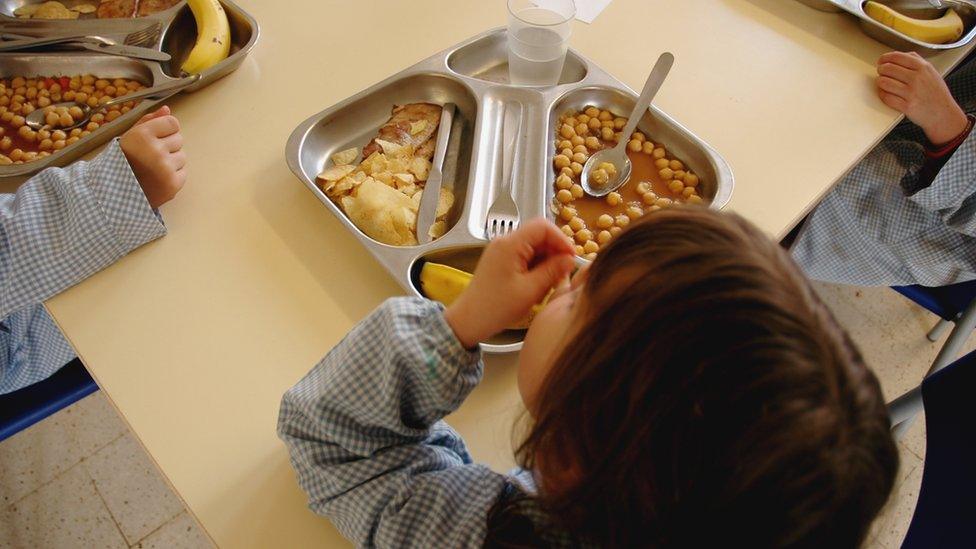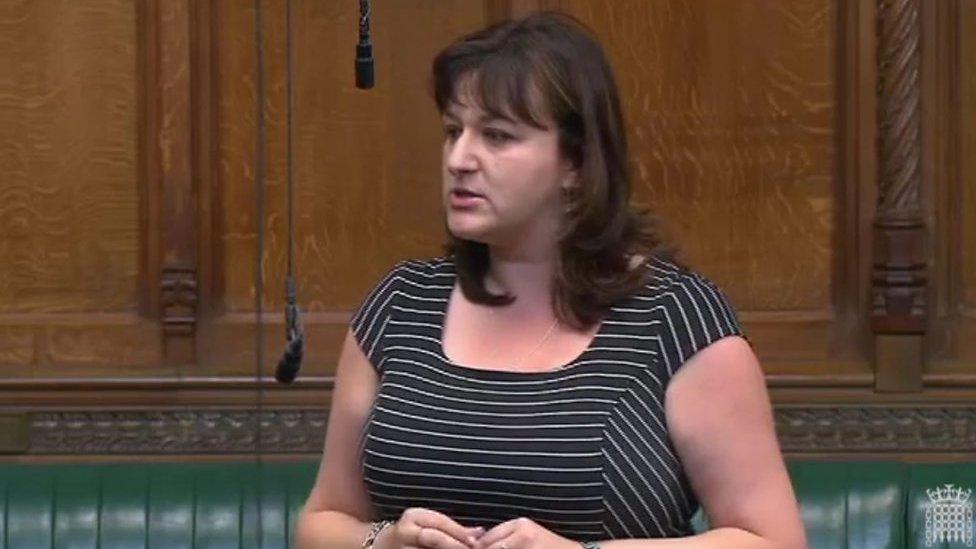Why summer is no holiday for low income families
- Published

Recently collated data shows almost half of children in Stoke-on-Trent are living in poverty
School's Out For Summer
We all know the first line of the Alice Cooper Band's barnstorming hit, no matter whether or not we were around when it first came out back in 1972.
Less well-remembered is the second line:
"School's out forever."
The six-week summer holiday can indeed seem endless for families on low incomes. Data collated recently by the End Child Poverty Coalition and researchers at Loughborough University shows almost half the children of Stoke-on-Trent, 43%, are living in poverty. The Department for Education says almost a quarter of the city's primary school children qualify for free school meals.
But during the long summer break, the responsibility for keeping them fed and healthy falls back on to their families, many of whom are struggling to cope: not just those who are out of work but, increasingly, people in low-wage employment and claiming benefits.
Four mothers came to Westminster last week to tell a panel of MPs how they struggle to make ends meet while their children are at home.

Over one million school children claim free school meals in England
"You feed them first, then whatever's left, you have." "It becomes stressful, very stressful." "You've got bills coming out and other things and you are literally looking to see if you've got to add more money for the food bill."
"In the holidays, you're spending more because your child's not in school and you're entitled to school meals, so you're doing a bigger shop."
And it was the Labour MP for Stoke-on-Trent North, Ruth Smeeth, who drove the message home, with a heart-rending account of a schoolboy in her constituency fainting because he had had so little to eat.
Ay Up Duck!
As if to identify its roots in the local community, this is the title given by Stoke's Hubb Foundation to their ambitious venture providing activities, safe places and, not least, thousands of meals for local youngsters. This fledgling charitable company is running holiday clubs in at least five centres around the city this summer. New research by Dr Sian Edwards of Keele University shows it's not just about the food, important though that is.
There is also strong evidence it offers significant social and educational benefits.
Great!
But it also raises some obvious, yet painful, questions:
The government's critics will ask what this tells us about life in 21st Century Britain after a decade of Conservative-led administrations, especially in those areas which feel, as the saying goes "left behind".

Labour MP for Stoke-on-Trent North, Ruth Smeeth, has raised the issue in Parliament
How much of the blame should be laid at the door of Universal Credit, the single replacement for a range of benefits which is usually paid in arrears in five weeks and often to people in work but on low wages?
And perhaps most importantly, what is the government going to do about it?
Their answer is a £9m cash boost to help feed 50,000 disadvantaged children across England this summer, including £2m for those in Birmingham alone. But with more than one million school children claiming free school meals in England, is this enough?
On the other hand, could this also reflect a decline in the parenting skills of rising generations of young adults? Are they really managing their money properly?
These are just some of the questions I'll be asking the MP who first raised this issue in the Commons, the Labour MP for Stoke-on-Trent North, Ruth Smeeth, and the Conservative MP for Redditch, Rachel Maclean. They will be joining me in the studio for this weekend's Sunday Politics Midlands.
And I hope you'll join me too, at 11:00 this Sunday morning, 14 July 2019, on BBC One in the West Midlands and throughout England on BBC One HD.
